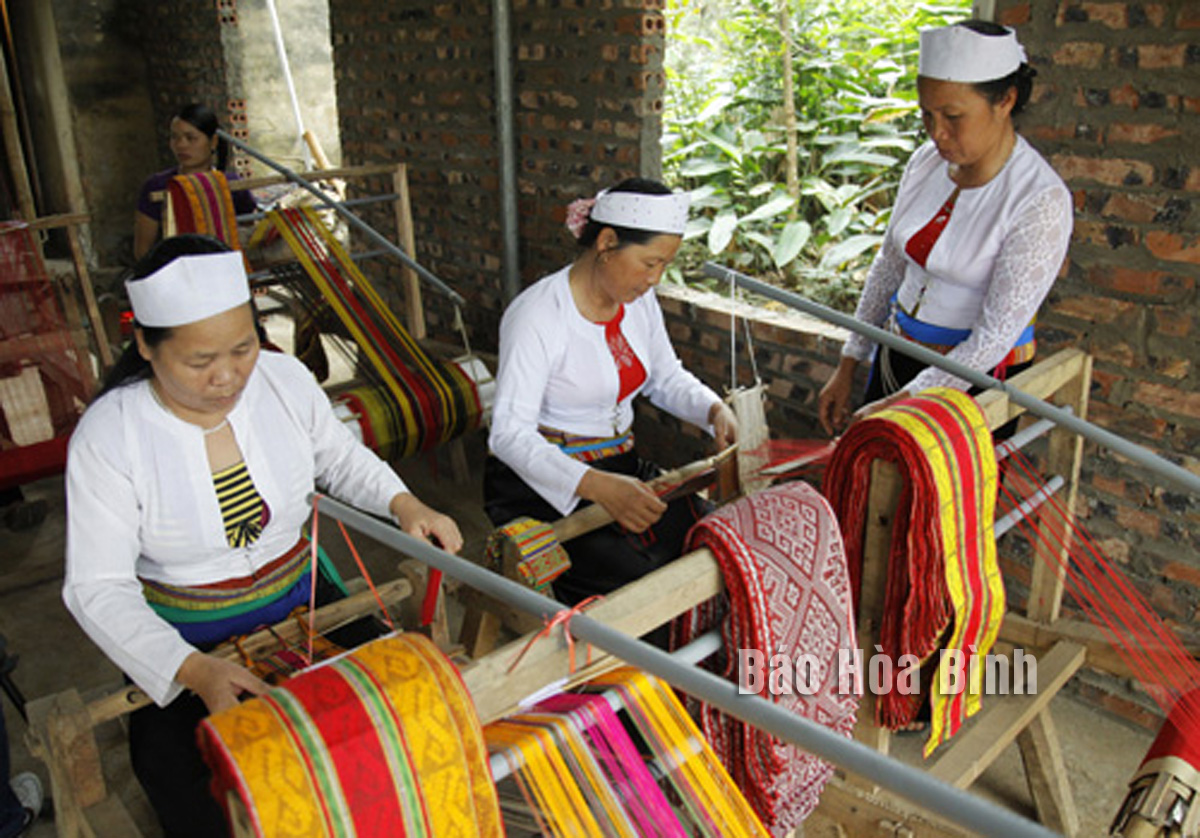
Hoa Binh province currently has 134 non-agricultural cooperatives, accounting for representing 26.8% of the local total cooperatives. Of them, 42 are in industry and handicrafts, 10 in construction, 13 in electricity, 20 in trade and services, 6 in environmental sanitation services, 14 in transportation, 10 in tourism, and 19 in other fields.
In recent years, traditional brocade weaving cooperatives have been particularly effective, playing a crucial role in preserving and promoting the cultural heritage of the Muong ethnic group.
These non-agricultural cooperatives have attracted over 2,000 members and created jobs for approximately 6,900 workers. In the first half of 2024, the average profit per cooperative was around 131 million VND (5,300 USD), with workers earning an average monthly income of 5.84 million VND.
According to the provincial People’s Committee, all non-agricultural cooperatives have successfully completed their transition and reorganisation in accordance with the 2012 Cooperative Law, thereby creating a solid foundation for future development. They play a significant role in advancing the province's goals for new style rural development, particularly in meeting Criterion 13, which focuses on production organisation.
Currently, 114 out of 129 communes in the province have met this criterion.
In Hoa Binh province, 11 traditional craft villages with more than 400 small-scaled production households have put in place a clean and green production model, establishing new standards for sustainable development. Waste collection sites and wastewater treatment facilities have been meticulously managed by local residents.
To make it easier for the residents to handle administrative procedures, Yen Bong Commune (Lac Thuy District) has identified the administrative reform as one of its key tasks. By implementing a range of synchronized solutions, the commune has seen the positive changes in the administrative reform, meeting the needs of its people.
Mai Chau district has firmly established itself as a standout destination on Vietnam’s tourism map, attracting both domestic and international visitors with its breathtaking landscapes, rich ethnic culture, and warm hospitality. However, beyond its natural and cultural charm, a secure and well-managed tourism environment has added to Mai Chau’s appeal.
As Vietnam enters a new phase of economic and administrative reform in 2025, Hoa Binh province is stepping up its efforts to streamline governance, boost economic growth, and attract investment.
The Hoa Binh provincial People's Committee held its monthly meeting on March 26 to review the progress of key projects, assess budget revenue and public investment disbursement, provide feedback on draft documents for submission to the provincial Party Committee's Standing Board, and discuss other important matters related to the committee's governance activities.
Playing a key role in Hoa Binh province’s economic development, Luong Son district has been focusing on science and technology development, innovation, and digital transformation.



